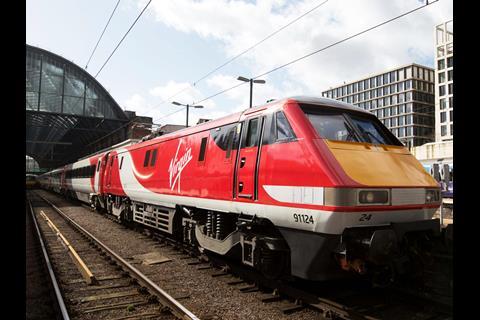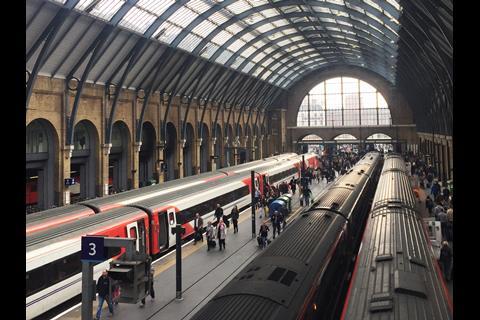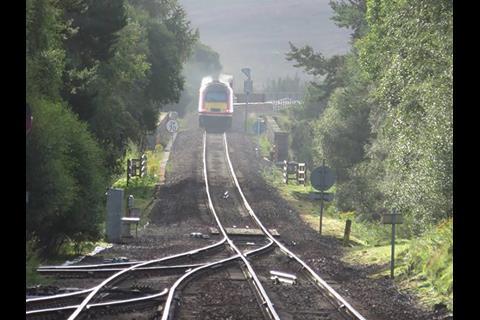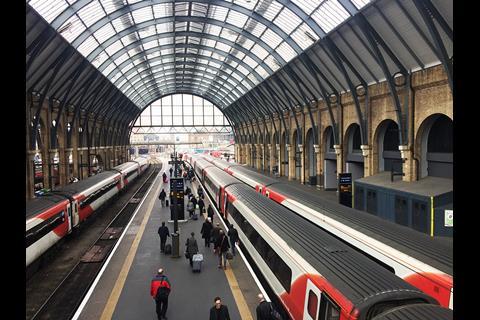UK: Operators Stagecoach and Virgin and the Department for Transport share responsibility for the failure of the InterCity East Coast franchise earlier this year, the House of Commons Transport Committee says in a report published on September 12.
The Intercity East Coast Franchise report also warns that the government’s proposal for a future East Coast Partnership involving closer integration between infrastructure and operations is unlikely to provide a step-change in performance. It says the Secretary of State should lay out in detail how this proposed partnership would work, and should undertake a proper assessment of its feasibility.
The previous ICEC franchise won by the Virgin Trains East Coast joint venture of Stagecoach (90%) and Virgin (10%) began in March 2015 and was scheduled to run for eight years. However it was terminated on June 24 2018 after VTEC was unable to meet its financial commitments to the government.
VTEC had been successful in the day-to-day operation of the franchise, the Committee found, making an operational profit of £260m in the financial year prior to termination and producing high passenger satisfaction ratings.
But although the revenues more than covered operating costs, the revenue projections underpinning VTEC’s bid had been over-optimistic, and the operating surplus did not fully cover the premium payments it had committed to make to DfT. To cover this shortfall, VTEC had to use the £165m parent company guarantee committed by Virgin and Stagecoach when the contract was let.
VTEC made premium payments totalling £800m over the shortened life of the franchise, and according to the Committee on average it contributed 20% more per four-week period to the taxpayer than when the franchise was managed by government-owned Directly Operated Railways in 2009-15.
The last of the parent company guarantee was drawn down on January 5 2018, and on January 30 the franchise went into technical default. The contract was terminated with effect from June 24, becoming the third ICEC franchise to fail since 2006, with operations taken over by a state-backed operator of last resort trading as LNER.
The Committee points out that the franchise contract capped the owning groups’ liability at £165m, and stressed that ‘the taxpayer has not bailed out Stagecoach and Virgin’.
The Committee’s inquiry found that unrealistic benchmarks in the invitation to tender had encouraged overbidding, the bid process did not discourage this and financial stress-testing of bids was not robust enough. As such, DfT must also take some responsibility for the franchise failure.
‘Franchises should be able to withstand normal fluctuations in the economic cycle’, said Committee Chair Lilian Greenwood. ‘Naivety, over-optimistic expectations and a mismanaged bid process all played a role in the failure of this franchise’.
The Committee found that infrastructure manager Network Rail did not bear any responsibility for the early termination of the franchise, despite suggestions by Virgin Group founder Sir Richard Branson. NR had completed the enhancements that were committed to when the franchise was let, although DfT’s failure to sign-off further works would have undermined the franchise from 2019, had it continued.
The Committee said DfT was responsible for confusion over when enhancements would be delivered, and future invitations to tender should be more closely aligned with NR’s plans.
Responding to the report, a Stagecoach Group spokesman said ‘we've operated railways on behalf of the government for more than 20 years and in developing our plans we used the same bold, ambitious and meticulous approach which delivered strong success in the past. As the Committee makes absolutely clear, there was no incentive to deliberately overbid and there was no taxpayer bailout in the unfortunate premature end to the contract.
‘Most importantly, we are pleased the Committee has supported our positive suggestions to reform franchising, including more appropriate risk-sharing, making the system more accountable and robust, and ensuring that the customers and communities who rely on the railway see promised infrastructure and service improvements in full and on time.’







